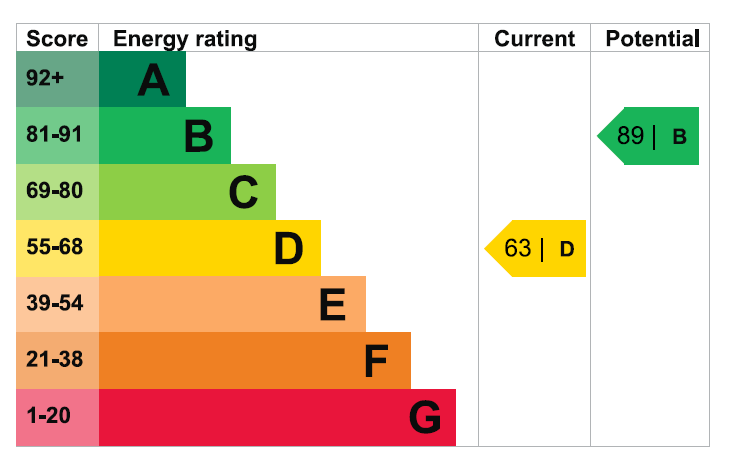OUR SERVICES
What Is an Energy Performance Certificate?
Energy Performance Certificates (EPCs) were originally introduced as part of European legislation to enable the Government to understand the thermal performance of buildings and thereby implement ways to improve their efficiency and help tackle climate change – after all, buildings account for approximately 52% of the UK’s carbon dioxide (CO2) emissions.
An EPC shows the building’s energy efficiency rating in a graphical format, on a scale of A – G (and 1 – 100) where A is the highest band and G is the lowest, but also where 1 is a low rating and 100 is good.
It is a legal requirement for any properties which are let or sold to have a valid EPC in force when they are marketed and, in the case of rental properties, when the tenancy begins. Since April 2018 it has been illegal to grant a new tenancy to a property which does not meet the Minimum Energy Efficiency Standards (MEES). To comply the property must have an EPC with rating of band E or better. in April 2020 this was extended to include pre-existing tenancies. The minimum energy rating is expected to increase further in the future in a bid to combat climate change.
EPCs are valid for a period of ten years, irrespective of whether the property is to be let or sold. For rental properties it is important to renew the EPC before it expires because we have heard anecdotal stories of judges failing to grant possession of properties to landlords because their EPCs had expired.
Floor Plans
Energy Performance Certificate (EPC)
The energy efficiency rating is a measure of the overall efficiency of a home. The higher the rating the more energy efficient the home is and the lower the energy bills are likely to be.
The environmental impact rating is a measure of a home's impact on the environment in terms of carbon dioxide emissions. The higher the rating the less impact it has on the environment.



